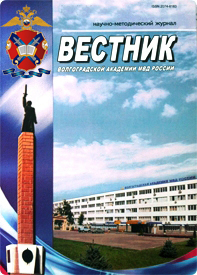The article is devoted to the definition of the sentence as an act of justice, as well as its place in the system of judicial decisions. It is noted that the legislator when regulating the sentence as a type of court decision follows two trends: traditional and new. As part of the traditional trend in the Code of Criminal Procedure of the Russian Federation, the regulatory directions related to the sentence are based on the recognition of its special nature, which is reflected in Chapter 39 of the Criminal Procedure Code, specially devoted to the resolution of the sentence, to the requirements to which it must comply, the structure, the order of disclosure. The new trend is characterized by the fact that the legislator equates the sentence with other judicial decisions, as evidenced by the content of pp. 53.1, 53.2 of Article 5 of the Code of Criminal Procedure of the Russian Federation. In addition, all court decisions, including the verdict, are defined as acts of justice (Art. 40.01.6 of the Code of Criminal Procedure). The article justifies that only the verdict of the first and second instance courts should be understood as an act of justice, since only it: is decreed on behalf of the state; resolves the issue of innocence or guilt of the defendant; has a prejudicial significance if it is decided in the general order of the trial. In this connection, on the basis of the analysis of theoretical judgments expressed in the science of criminal procedural law, the peculiarities of justice are singled out, and it is also justified that the implementation of justice is a type of realization of the function of resolving a criminal case in essence with the obligatory resolution of the question of the guilt of the defendant. Accordingly, all other types of realization of the judiciary, for example, the termination by a court of a criminal case, judicial control, verification of judicial decisions that have entered into legal force, extradition are options for the resolution of a criminal case, but are not the implementation of justice, since the judicial acts issued during their proceedings do not resolve the issue of the person's guilt.
justice, sentence, final judicial decisions, prejudice, court session, judicial investigation
1. O vnesenii izmeneniya v stat'yu 90 Ugolovno-processual'nogo kodeksa Rossiyskoy Federacii: feder. zakon ot 29 iyunya 2015 g. № 191-FZ // Ros. gaz. 2015. 6 iyulya.
2. O vnesenii v Gosudarstvennuyu Dumu Federal'nogo Sobraniya Rossiyskoy Federacii proekta federal'nogo zakona «O vnesenii izmeneniy v Ugolovno-processual'nyy kodeks Rossiyskoy Federacii»: postanovlenie Plenuma Verhovnogo Suda Rossiyskoy Federacii ot 27 aprelya 2017 g. № 13. URL: http://www.vsrf.ru (data obrascheniya: 19.05.2017).
3. Motovilovker Ya. O. O predmete i dvizhuschey sile ugolovnogo processa // Pravovedenie. 1987. № 6. S. 81-83.
4. Zayceva E. A. Suschnost' i znachenie stadii sudebnogo razbiratel'stva // Ugolovnyy process: uchebnik. Ch. 3. Sudebnoe proizvodstvo po ugolovnym delam. 4-e izd., pererab. i dop. / pod red. V. G. Glebova, E. A. Zaycevoy. Volgograd: VA MVD Rossii, 2013. 296 s.
5. Manova N. S. Suschnost' i procedury proizvodstva po proverke sudebnyh resheniy, ne vstupivshih v zakonnuyu silu // Ugolovno-processual'nyy kodeks Rossiyskoy Federacii: god pravoprimeneniya i prepodavaniya. M.: MGYuA, 2004. S. 291-295.
6. Ashirbekova M. T. Princip publichnosti ugolovnogo sudoproizvodstva: ponyatie, soderzhanie i predely realizacii: dis. … d-ra yurid.nauk. Volgograd, 2009. 483 s.
7. Berova D. M. Sovpadaet li pravosudie s razresheniem ugolovnogo dela sudom? // Yuridicheskaya nauka i pravoohranitel'naya praktika. 2014. № 4. S. 15-19.
8. Martynyahin L. F. Sudebnye ugolovno-processual'nye funkcii, ih predmet i predely osuschestvleniya // Vestnik Tomskogo gosudarstvennogo universiteta. 2009. № 327. S. 118-121.
9. Ashirbekova M. T. Sootnoshenie ugolovno-processual'nyh funkciy s etapami pravoprimeneniya i naznacheniem ugolovnogo sudoproizvodstva // Vestnik Volgogradskoy akademii MVD Rossii. 2015. № 4. S. 90-95.









